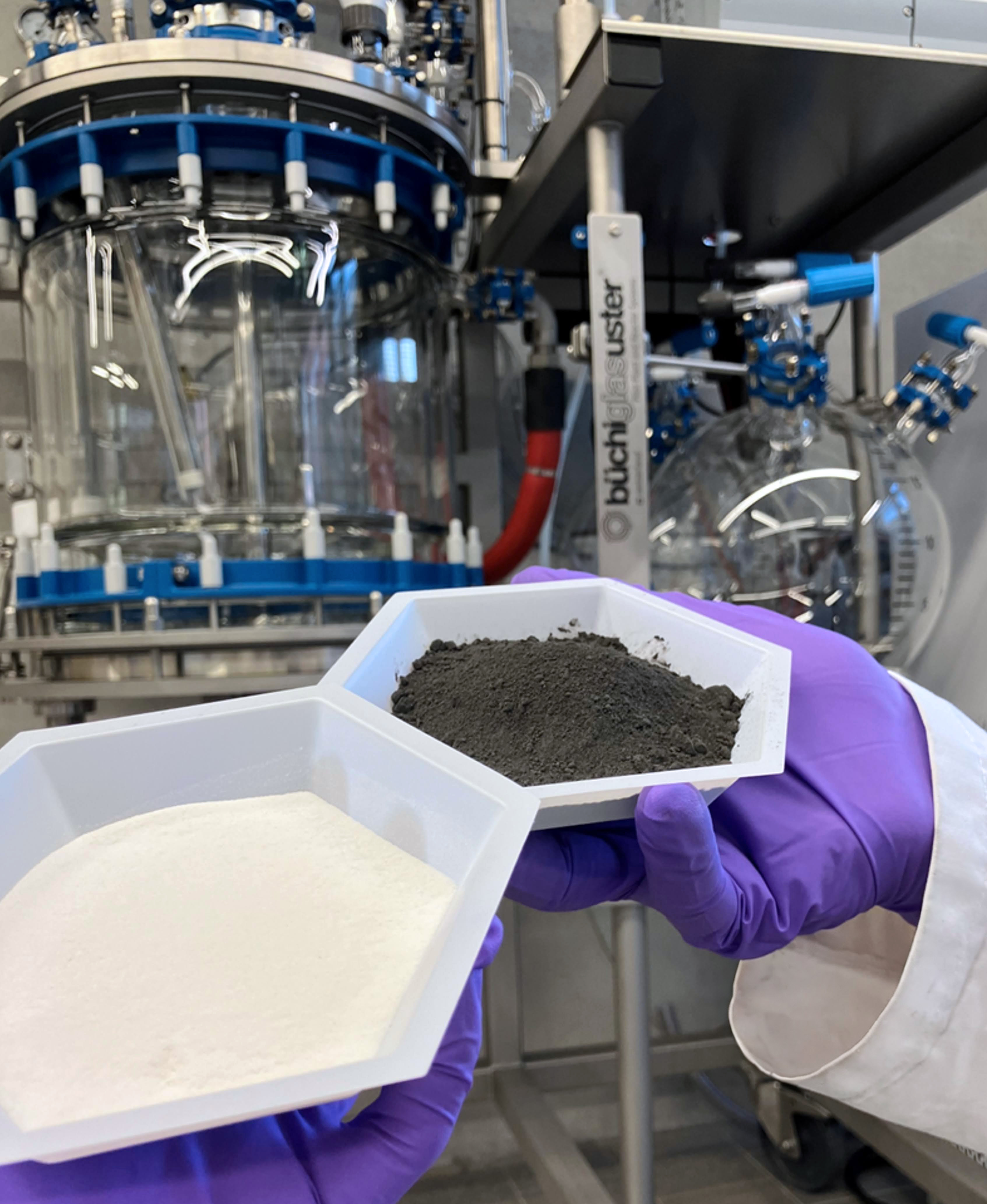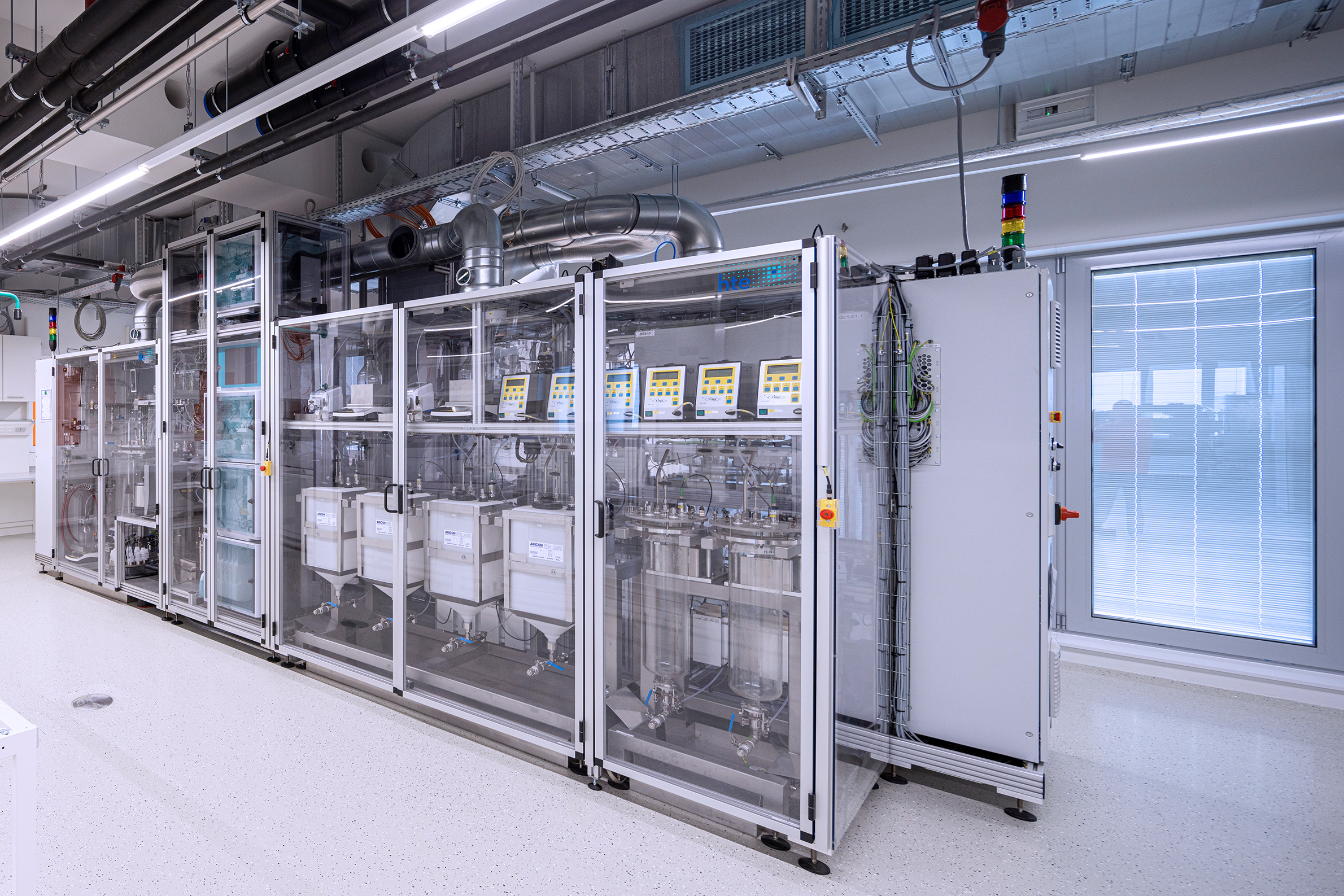BMBF project launched for fast industrial implementation of sodium-ion technology



The project "Sodium-Ion-Battery Deutschland-Forschung - SIB:DE FORSCHUNG", funded by the Federal Ministry of Education and Research (BMBF), aims to evaluate the suitability of sodium-ion battery technology (SIB) for the European energy and mobility transition to speed up industrial implementation. To this end, 21 national partners from science and industry are pooling their expertise from battery material development to the production of large-format cells to enable the fast transfer of research results into practical applications.
Battery cells are an indispensable part of the mobility transition agreed by the European Union by 2030. They also play a crucial role in the integration of large amounts of renewable electricity into the grid and are essential for an uninterrupted power supply when setting up 5G telecommunications stations. Lithium-ion batteries are currently the most used energy storage devices. However, the dependence and scarcity of raw materials poses a significant challenge for the lithium-ion battery market. Comparable alternatives are therefore urgently needed for both mobile and stationary energy storage systems. Sodium is considered a particularly uncritical raw material, is readily available, inexpensive and is classified as very safe. Sodium-ion batteries can therefore play a key role in ensuring a stable and sustainable European energy supply.
Long-term stability and high energy density as a development goal
When using alternative raw materials, it is important to optimize both the long-term stability and the practical use of the theoretical energy densities of the materials and cells of sodium-ion technology in comparison to conventional developments in order to ensure the required performance. Despite similar electrical properties, lithium and sodium cannot simply be replaced. Chemical differences between these elements currently lead to technical challenges that result in faster aging of sodium batteries and impair their performance.
The "SIB:DE FORSCHUNG" project therefore aims to identify SIB active materials that can be produced in a scalable way and offer competitive cell performance. In addition, the development of SIB cell demonstrators and the evaluation of the technology's drop-in capability, which enables integration into existing lithium-ion technology production processes, is of particular importance. This will facilitate the transfer to the new technology and reduce production costs and development time. To evaluate the results, an assessment matrix will be created that considers technological, economic and ecological factors for different material systems and processes.
More added value through strong partners
The project consortium of the "SIB:DE FORSCHUNG" project consists of seven industrial partners and 14 academic partners, as well as an extended circle of currently 42 associated partners from science and industry. This makes it the largest consortium in Germany on this topic. BASF is coordinating the overall project. Only by closely interlinking expertise from science and industry a rapid transfer of research results to industrial scale-up can be achieved as well as a fast market penetration of sodium-ion technology.
While the academic partners are working on the material science and cell technology topics, the industrial partners are focusing on scaling up the materials and industry-oriented cell formats. At the end of the project, the work will result in a recommendation on the feasibility of an industrializable process. These results will then act as a direct interface to the production topics and industrial formats that are targeted in the planned follow-up project on production research "SIB:DE ENTWICKLUNG". The main goal of the overall project is to establish a comprehensive ecosystem for the production of sodium-ion batteries.
With its work, the entire "SIB:DE initiative" represents a significant step towards sustainable and independent battery development in Europe and contributes to overcome the challenges of electromobility and renewable energies.
Funding
Federal Ministry of Education and Research (BMBF)
Duration: 1.2025-12.2027
Project management organization: Project Management Jülich (PtJ)
Funding reference: 03XP0627C
Funding amount: ~ 14 million euros

Project partners
- BASF SE (Coordinator)
- Center for Solar Energy and Hydrogen Research (ZSW)
- E-Lyte Innovations GmbH
- Evonik Operations GmbH
- Forschungszentrum Jülich/ Institute of Energy Materials and Devices (IMD-4, Helmholtz Institute Münster)
- Fraunhofer Institute for Casting, Composite and Processing Technology IGCV
- Fraunhofer Institute for Manufacturing Technology and Advanced Materials IFAM
- Fraunhofer Research Institution for Battery Cell Production FFB
- Humboldt University of Berlin
- KIT/Helmholtz Institute Ulm (AK Bresser)
- KIT/Helmholtz Institute Ulm (AK Fichtner)
- Karlsruhe Institute of Technology (KIT) - Institute for Applied Materials - IAM
- Karlsruhe Institute of Technology (KIT) - Institute of Nanotechnology - BELLA
- Litona GmbH
- Rain Carbon Germany GmbH
- RWTH Aachen - Institute for Power Electronics and Electrical Drives (ISEA)
- Schunk Carbon Technology GmbH
- Technical University of Munich
- University of Bayreuth
- University of Münster (MEET Battery Research Center, IfBM)
- VARTA Microbattery GmbH
Illustrations
Publication free of charge in connection with reporting on this press release.
Pictures and PDF for download
Last modified:
 Fraunhofer Institute for Manufacturing Technology and Advanced Materials IFAM
Fraunhofer Institute for Manufacturing Technology and Advanced Materials IFAM